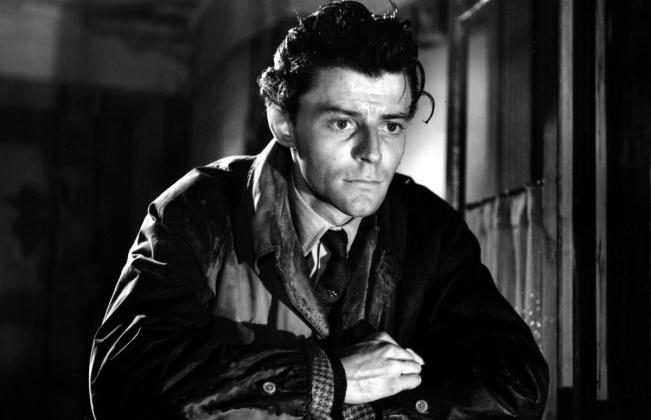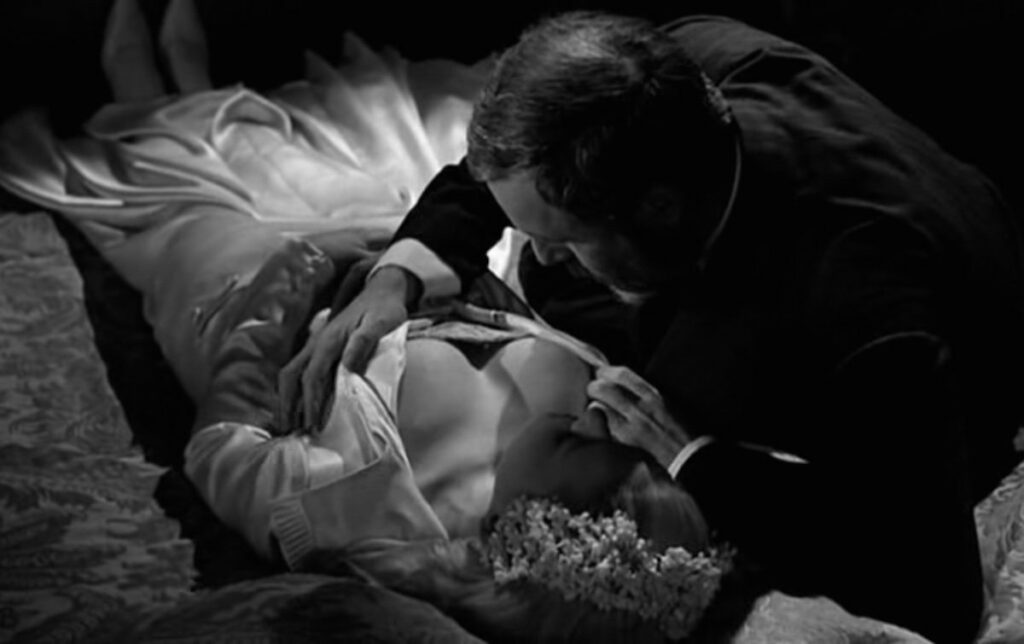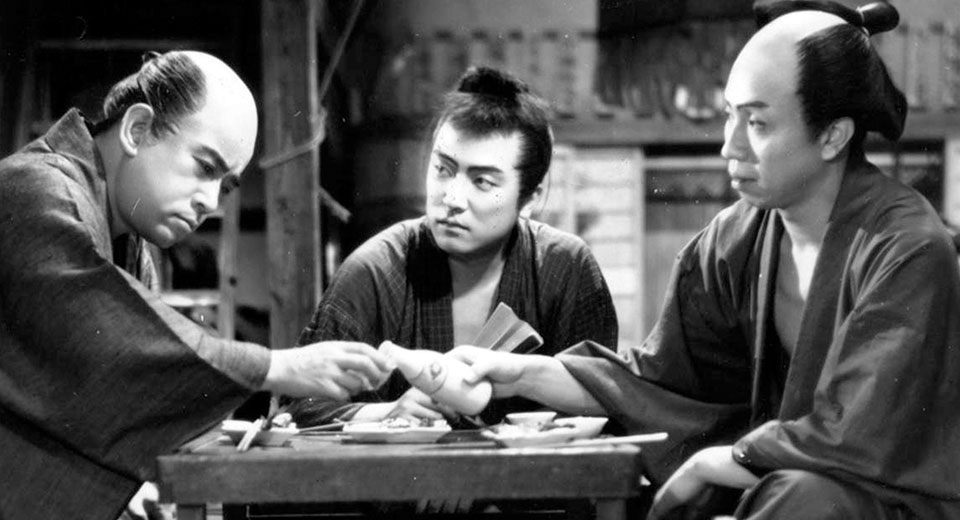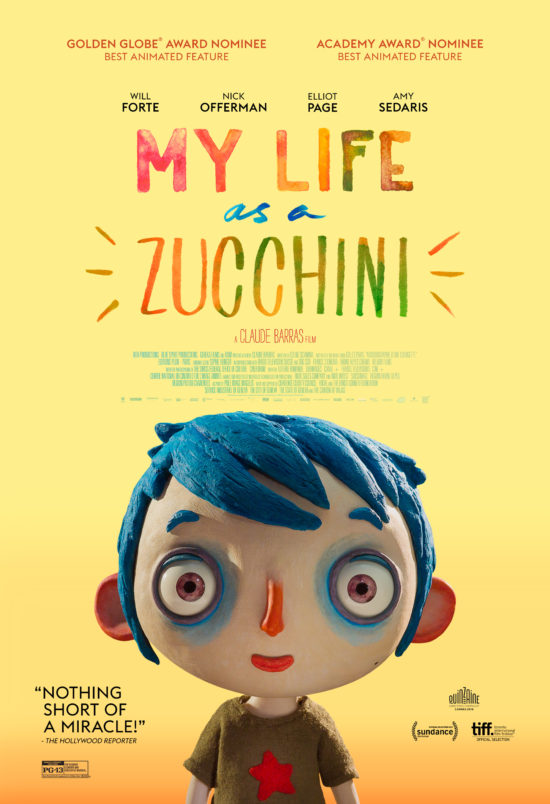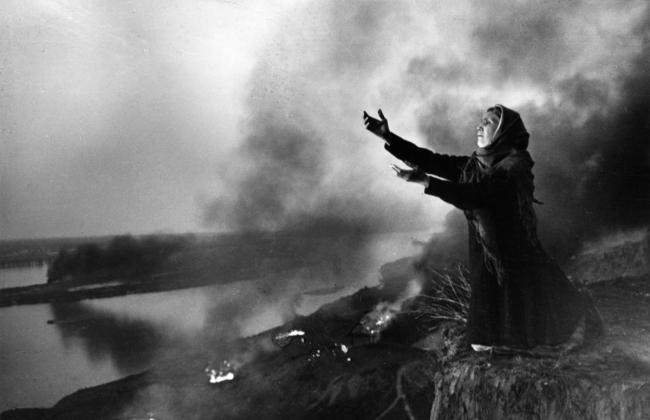BAMPFA’s Summer Schedule Preview
This summertime’s planning needs to include space to check out the summer quarter’s programming at the Berkeley Art Museum Pacific Film Archive (hereafter BAMPFA). Why not pay tribute to the man who helped shape both the Pacific Film Archive and the Telluride Film Festival? How about enjoying the balm of ferocious cinematic satires of the GQP sacred cow of religion? Or feel like revisiting some classics of animated storytelling in the digital age? All these and more can be found this summer at the BAMPFA.
The “Ambassador Of Cinema: Tom Luddy’s Lasting Influence At BAMPFA (June 1 – July 15)” film series kicks things off with a tribute to the man who made a humongous impact on American film culture. Over his amazing fifty-year career, Tom Luddy helped found the Telluride Film Festival and was associated with both the San Francisco International Film Festival and the New York Film Festival. But it was Luddy’s work with the Pacific Film Archive during its formative years in the 1970s that would eventually make it a center of local film culture. If these achievements weren’t enough, Luddy worked with film curator Albert Johnson to convince UC Berkeley to establish a Film Studies Department.
Luddy himself died in February of this year. This film series honors the man’s spirit and life work with an intriguing mix of Luddy’s personal favorite films (e.g. “Sunrise: A Song Of Two Humans”), films by filmmakers introduced by Luddy to BAMPFA audiences (e.g. Wim Wenders), and even films discovered by or brought into existence by Luddy (e.g. “I Am Cuba,” “Werner Herzog Eats His Shoe”).
The “Ambassador Of Cinema” series can certainly provide an excuse to check out such world cinema classics as “Memories Of Underdevelopment,” “Jeanne Dielman, 23 Quai Du Commerce, 1080 Bruxelles,” or “Aparajito.” But why not embrace the Luddy spirit and try some of the lesser-known but no less intriguing offerings in the series? “Such A Pretty Little Beach” (June 3) concerns a young man whose motivation for returning to the isolated seaside inn where he spent his childhood might be a lot more sinister than mere nostalgia. Nicholas Ray’s “Bigger Than Life” (June 10) stars James Mason as a stressed-out small-town schoolteacher who turns into a Jekyll and Hyde monster thanks to cortisone use. Andrei Konchalovsky’s debut feature “The First Teacher” (June 21) concerns a former Red Army soldier who encounters hardship and local hostility after he’s sent to teach in what today would be called rural Kyrgyzstan.
BAMPFA begins a retrospective of the films of Luis Bunuel in the series “Luis Bunuel’s Magnificent Weapon” (July 7 – November 2023). The series’ odd title comes from an address the director made to the University of Mexico back in 1953. He said, “In the hands of a free spirit the cinema is a magnificent and dangerous weapon…a superlative medium through which to express the world of thought, feeling, and instinct.”
The Summer part of this retrospective focuses on Bunuel’s European films of the 1960s and 1970s. The series kicks off with Bunuel’s Cannes Palme d’Or winner “Viridiana.” The title character is a young woman whose dream of becoming a nun gets permanently waylaid by a lecherous uncle. Instead, she winds up turning her uncle’s estate into a haven for society’s outcasts. The Beggar’s Banquet, a blasphemous parody of the Last Supper, is just one reason why the Vatican condemned the film and Generalissimo Francisco Franco banned it from screening in Spain.
Other highlights of the series include: “Diary Of A Chambermaid” (July 14), where Bunuel moves the setting of Octave Mirbeau’s titular novel to 1928 France as fascism is on the rise yet still keeps the setup of new chambermaid Celestine (Jeanne Moreau) becoming a fetish object for a family of ordinary wealthy perverts; “The Discreet Charm Of The Bourgeoisie” (August 4), the tale of a dinner party for half a dozen wealthy people getting interrupted by such obstacles as a pot-smoking militia or a band of terrorists at the door; and “The Phantom Of Liberty” (August 5), a chain of coincidentally linked vignettes which seems to demonstrate the director’s conception of liberty “as a ghost that we try to grasp.”
Given the GQP’s current efforts to push society backward in the name of so-called morality, it feels like the right time to embrace Bunuel’s films anew. As the director puts it, “…middle-class morality…is for me immoral. One must fight it. It is a morality founded on our most unjust social institutions–religion, fatherland, family, culture…”
Preston Sturges may not have displayed Bunuel’s degree of animosity towards middle-class morality. But as the film series “Preston Sturges: More Than Comedy” (July 27 – August 26) shows, beneath the marriage of slapstick comedy and witty dialogue verbally “spritzed” at the viewer lies the type of bite that will arouse a pit bull’s jealousy.
“The Great McGinty” (July 27) is a political satire set in “the mythical city of Chicago in the imaginary state of Illinois.” The title character (Brian Donlevy) happens to be a bum who gets elected to high office thanks to the backing of the right political machine. The great American pipe dream of overnight success gets a welcome razzing in “Christmas In July” (August 9). Striving clerk Dick Powell hits the big time thanks to his winning a coffee company jingle contest. However, what he doesn’t know is that his victory was prematurely declared, and the company’s trying to find some way to do damage control. In “Hail The Conquering Hero” (August 23), chronic hay fever denies Woodrow Lafayette Pershing Truesmith the chance to go overseas and fight for the U.S. But he becomes a hero anyway thanks to his hometown’s need for a hero to claim as its own.
In addition, the series will present three films with scripts by Sturges but helmed by other directors. The best of these, “Easy Living” (August 6) concerns a working girl (Jean Arthur) whose life unexpectedly changes after a fur coat literally falls out of the sky onto her head. What follows is a satire of the privileges of wealth.
For those who think Tokyo is a shining city of the future, the series “Shitamachi: Tales Of Downtown Tokyo” (June 16 – July 29) is strongly likely to rock their world. Shitamachi refers to the low part of Tokyo, the Tokyo of the working class, and living examples of life’s harder edges. Here, you’ll find “dense alleyways, rickety homes, claustrophobic bars, and pachinko parlors.” But as these films show, the name’s more a state of mind than a specific physical location.
This series offers a mix of films by established Japanese master directors and films from Japanese directors who deserve to be better known in the U.S. In the former category are such well-known films as Akira Kurosawa’s “Stray Dog” (June 16), Yasujiro Ozu’s “Tokyo Story” (June 24), and Hirokazu Kore-eda’s “Nobody Knows” (July 9).
The latter category offers some gems worthy of viewer discovery. Sadao Yamanaka’s acclaimed 18th century-set “Humanity And Paper Balloons” (June 28) concerns a ronin who winds up mingling with commoners, thugs, and a barber trying to stay one step ahead of merchants and lords. Yuzo Kawashima’s “Suzuki Paradise: Red Light District” (July 1) tells the story of a down-on-their-luck couple who move into a place on the edge of Tokyo’s red light district. Instead of feeling terrible about living there, the couple take two different paths to survival: the man’s willing to take any job no matter how demeaning while the woman hopes flirting with her well-off neighbor will offer a pathway out of poverty. Heinosuke Gosho’s masterwork “Where Chimneys Are Seen” (July 23) is set during Tokyo’s increasing industrialization in the 1950s. The main characters (a tabi sock salesman, the salesman’s lonely wife, and the couple’s two timorously amorous lodgers) have their lives disrupted when an abandoned baby is found on their doorstep. The film’s odd title references a metaphor for perceiving life.
The series “Claudia Cardinale Once Upon A Time” (June 9 – July 22) spotlights one of the great Italian actresses. Cardinale may have started out wanting to be a schoolteacher. But a fateful trip to the Venice Film Festival would lead to her becoming a multilingual international star. American audiences may best know of Cardinale thanks to her performances in the classics “8 ½,” “The Leopard,” and “Once Upon A Time In The West.”
Those classics play as part of this series, which presents film restorations of Cardinale’s notable performances from the late 1950s and 1960s. A good place to start might be “Bebo’s Girl” (June 9), the film which earned Cardinale her first major acting award. She plays Mara, a rural teenager in postwar Italy who falls in love with a slightly older partisan (George Chakiris, “West Side Story”). However, lingering hatred from the recently concluded Second World War dooms the couple’s hopes for a happy ending. “Senilita” (June 22) adapts acclaimed writer Italo Svevo’s novel about the doomed love affair between a melancholy but narcissistic intellectual (Anthony Franciosa) and a high-spirited flapper (Cardinale). “Sandra” (July 15) pairs Cardinale once again with director Luchino Visconti for this tale of a woman who returns home with her new American husband for the unveiling of a memorial to her father, who died at Auschwitz. But did her mother denounce her father to the Nazis? Is her possible incestuous relationship with her brother ready to roar back to life?
The wealthy are definitely not objects of veneration in the films of Yuliya Solntseva. Those familiar with classic silent films will recognize Solntseva’s name as that of the actress who played the titular “Aelita, Queen Of Mars” (August 20). But this actress’ cinematic oeuvre resides in more than her acting career. As the series “Out Of The Vault: The Enchanted Yuliya Solntseva” (July 21 – August 27) shows, Solntseva’s creative talents also extended behind the camera. Not only did she assist her husband, noted film director Oleksandr Dovzhenko, she also brought to the screen several of her late husband’s screenplays and even created several of her own films.
“The Story Of The Flaming Years” (July 21) happens to be based on a Dovzhenko script. Soldier Ivan Orlyukov is the viewpoint character for this impressionistic portrait of the Ukrainian peasants’ struggle to repel the Nazi invaders during World War II. Solntseva became the first woman to win the Best Director award at Cannes for this film, thanks in part to her incredible montage sequences and skillful use of double and triple superimpositions. “Poem Of the Sea” (August 16) does employ a Dovzhenko script about a Ukrainian village being submerged to create a “new sea” to be used as a power source for a new hydroelectric plant. But the visual magical realist results are all Solntseva’s doing. “The Enchanted Desna” (August 27), the last of Solntseva’s Dovzhenko script adaptations, was named by Jean-Luc Godard as the best film of 1965. It’s a semi-autobiographical piece set in three different time periods: present day, World War II, and the farm village of protagonist Olekdandr’s childhood. What ties these periods together is the Desna river and the expressionistic images Solntseva employs (which will hopefully still look striking despite the print’s faded condition).
Definitely not guilty of lack of color are the films in the series “The Art Of Animation: Storytelling In The Digital Age” (August 3-31). This series is in conjunction with the new Bill Kinder and Bobbie O’Steen book Making The Cut At Pixar: The Art Of Editing Animation. The animated films in the series were all made from 1999 on and demonstrate the new ways of storytelling now possible in the digital age. The offerings range from family-friendly Pixar fare to the powerful animated documentary “Flee.”
Some of the films to be screened in this series include: “Ratatouille” (August 5), the Academy Award-winning tale of Remy the rat’s efforts to make his mark in the world of haute cuisine despite food industry rat phobia; “My Life As A Zucchini” (August 19), a stop-motion animated tale (with a script by “Petite Maman”’s Celine Sciamma) of an orphaned boy named Zucchini who learns to love and trust others at a foster home for orphans; and “Spirited Away” (August 18), Hayao Miyazaki’s Academy Award-winning tale of a 10-year-old named Chihiro who must save her parents and herself by working in a bathhouse frequented by millions of gods.
As a special treat, three of the films in this series will be screened outdoors for free. They are: “Toy Story 2” (August 3), in which Woody the toy cowboy gets reunited with a family he didn’t know about…but there’s a big catch; “Finding Nemo” (August 17), in which Marlin the clownfish must find and rescue his kidnapped only son Nemo while finally dealing with his overprotectiveness of Nemo; and “Persepolis” (August 31), an adaptation of Marjane Satrapi’s acclaimed memoir of her life during the Iranian Revolution and its repressive aftermath.
Don’t forget the Special Screenings. They offer either a second chance to see some acclaimed films viewers may have missed earlier or a chance to see a restoration of a significant film. “Town Destroyer” (June 10) looks at the recent dispute over a set of historical murals of George Washington’s life displayed in the halls of SF’s George Washington High School. “Black Life: Saint Omer” (June 25) concerns a novelist named Rama who becomes deeply interested in the trial of Laurence Coly, a mother accused of murdering her 15-month-old child. Finally, “The March” (August 25) is the National Film Registry documentary record of the 1963 March On Washington for Jobs and Freedom. This free screening celebrates the 60th anniversary of that historic event.
Whether these and other offerings being shown by BAMPFA this quarter surpasses the season’s heat remains a question for viewers to answer.


